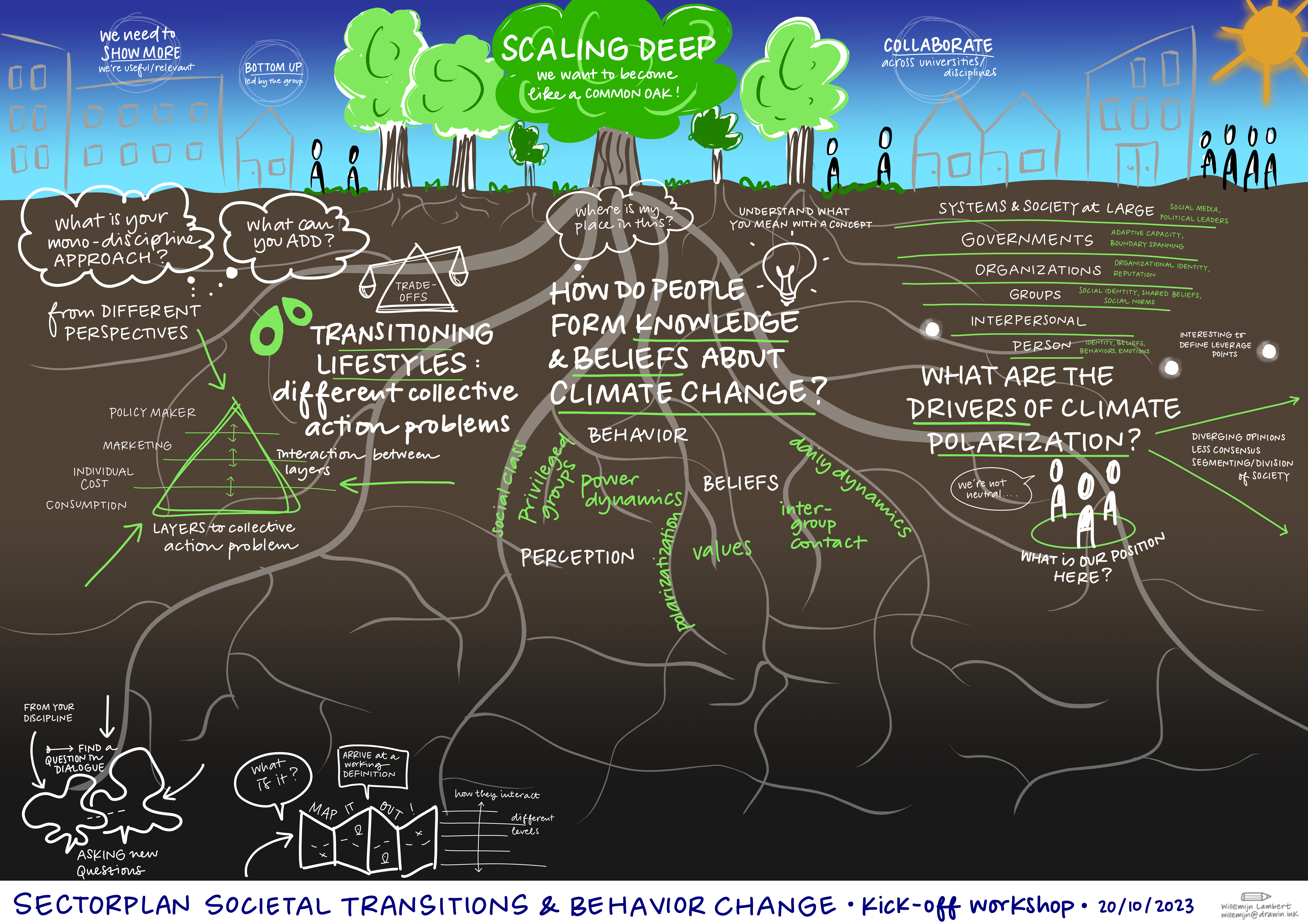🗡️Societal Transitions and Behavior Change 🗡️
Welcome
This is the website of sector plan theme Societal Transitions and Behavior Change (STAB). Below, you find the background for this sector plan theme. To get a more concrete idea of what we’re about, you may want to check out the descriptions of and by this sector plan’s core persons.
Problem Sketch
The world’s population is facing issues such as lack of sustainability, climate change and an increasing prevalence of diseases of affluence, such as addiction, obesity or cardiovascular disease. These are problems that have generally arisen as an unintended consequence of the way society and our behavior have evolved. To address such com- plex problems, systems, structures and individual and group behavior must change simultaneously. There is talk of the desirability of several transitions: an energy transition, a food transition and a change to circular agriculture and restoration of biodiversity. Achieving such sweeping transitions requires an understanding of a complex of processes that influence human behavior.
The emergence of new technologies is expected to contribute significantly to transitions. At the same time, research shows that new technological possibilities only lead to changes in individual and collective behavior when they are linked to new organizational models, procedures, regulations and markets, and when citizens start thinking and talking substantially differently. There is much research that shows under what circumstances citizens want to change their behavior and what factors contribute to greater support for certain measures, but long-term transition processes require optimal coordination of policies and inter- ventions at different aggregation levels (individual, group, organization, system) and in different domains (research, innovation, governance, communication and value chains). The answers found in terms of both behavioral change and governance arrangements will also increasingly be found outside the beaten path of traditional representative democracy and rule of law; both nationally and internationally. This also calls into question the legitimacy of existing governance and rule of law arrangements, in terms of democratic accessibility and accountability. Without confidence in a well-functioning government, such transitions will not get off the ground.
STAB core persons
STAB coordinators
First National Meeting
This art work was created at the first national STAB meeting by Willemijn Lambert. It shows the discussions of the day and the approach we take in this sector plan theme: like an oak tree, we scale (root) deep, not shallow.
